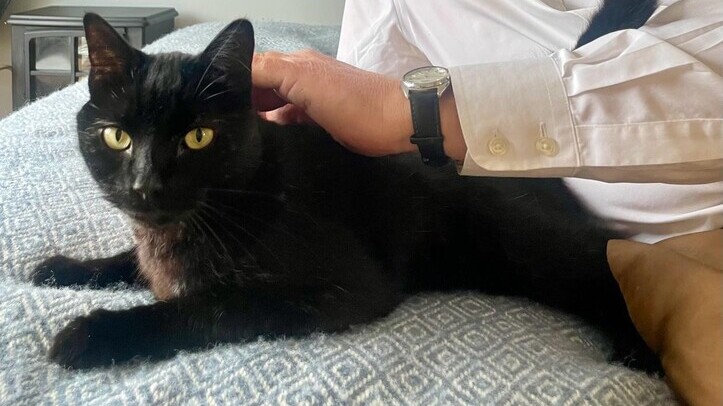A growing interest in acquiring adult pets and marked gender differences when it comes to adopting cats are two of the key highlights revealed by the latest pet population survey from manufacturers’ trade association UK Pet Food.
The research, based on an online survey of 8,956 households by Kantar / Soulor Consulting shows that, for the first time since the pandemic puppy and kitten boom, there has been a growing appreciation for mature pets across all demographics, with a total of around 2.5 million households acquiring adult cats 2.1 million adult dogs.
Additionally, over the past four years, 27% of men have chosen to take on an adult cat as a pet, compared to 18% of women. This translates to 1.5 million new male households benefiting from the addition of an adult cat, compared to around 1 million female households.
Further research with a second subgroup of 2,558 households focused on those who had recently acquired a new pet. Within the subgroup, 962 new owners answered this question with 34% acquiring a puppy (equivalent to 3.7m households), 24% a kitten (2.6m households), 23% an adult cat (2.5m households) and 19% an adult dog (into 2.1m households).
Overall, the findings show that there are now 36 million non-aquatic pets in the UK, spread across 17.2 million households (60% of the total). There are 13.5 million dogs and 12.5 million cats in the UK in 2024 – an increase of 1.5 million each – while fish are present in 21% of UK homes.
The report confirms that emotional benefits appear to be a strong draw for pet ownership with around one quarter of owners admitting that they enjoy time with their pet more than with their family members. Over a third (39%) confirm that their pet benefits their family’s mental health, around one half of owners over 45 would be lonely without their pet, and one fifth would like to see pets available on prescription.

Michael Bellingham, chief executive of UK Pet Food, said: “This year’s findings prove again the huge popularity of pets in the UK. As the owner of an older cat, I was particularly interested to see that more men are adopting older cats!
“There could be all sorts of reasons for the increasing popularity of our furry and aquatic companions, but this year’s research highlights the profound therapeutic impact of pets. Pets play a significant role in our homes; they help combat loneliness and they can have a positive effect on our mental health. We were pleasantly surprised to see that one fifth of those questioned are calling for pets to be available on prescription. We couldn’t agree more.”
Daniel Warren-Cummings, behaviour officer at Cats Protection and owner of Lady Bug the cat, added: “Cats have always been a popular choice of pet but we’re particularly delighted to see that more men are seeing the benefits of older cats, as well as kittens.
“Just like humans, all cats are different and this is what makes them great pets for people from all walks of life – whether its indoor cats suited to living in a quiet home, or more adventurous ones that thrive in a busy household and love exploring the outdoors.
“We often hear from men who tell us their cats are not only great companions, they’re also incredibly entertaining which can be a great stress-buster.”
UK POPULATION OF PETS
60% of UK households (17.2m) households own 36 million non-aquatic pets:
- 13.5 million dogs (36% households)
- 12.5 million cats (29%)
- 1.5 million indoor birds (3%)
- 1.3 million domestic fowl (1.6%)
- 1 million rabbits (1.6%)
- 700,000 tortoises and turtles (1.6%)
- 700,000 horses & ponies (1.5%)
- 700,000 Guinea Pigs (1.2%)
- 600,000 hamsters (1.5%)
- 600,000 snakes (1.3%)
This year’s Pet Population data is featured as part of the comprehensive ‘Pet Data Report,’ offering insights into UK population data, regional trends, market data, pet nutrition research and more. For further details, visit ukpetfood.org.



